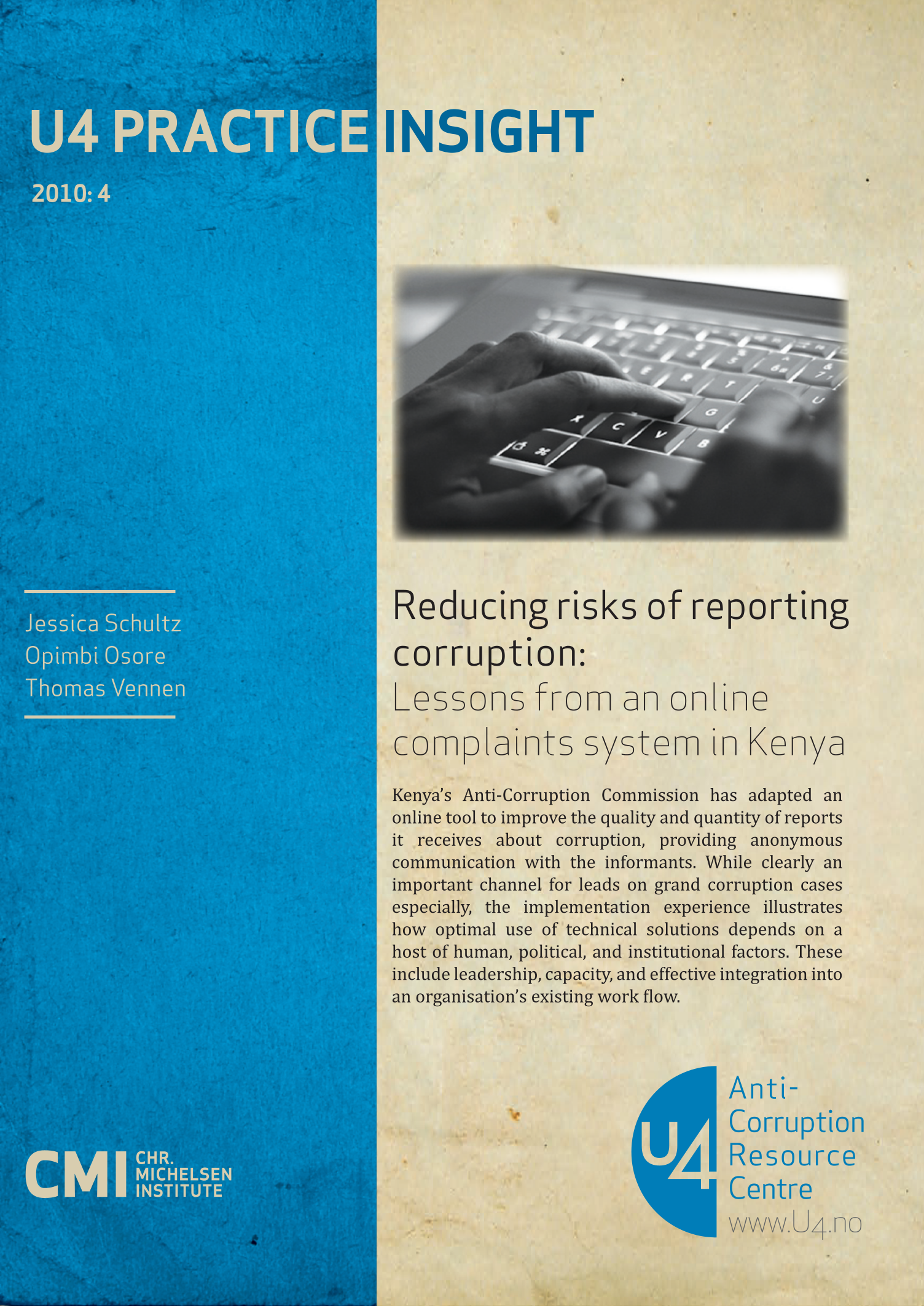U4 Practice Insight
Reducing risks of reporting corruption: Lessons from an online complaints system in Kenya
Kenya’s Anti-Corruption Commission has adapted an online tool to improve the quality and quantity of reports it receives about corruption, providing anonymous communication with the informants. While clearly an important channel for leads on grand corruption cases especially, the implementation experience illustrates how optimal use of technical solutions depends on a host of human, political, and institutional factors. These include leadership, capacity, and effective integration into an organisation’s existing work flow.
Tipping the authorities about corruption in Kenya – as in many places – is a high-risk endeavour. People have been fired, harassed, driven from their homes and even murdered for daring to speak out about bribery and other abuses of power. At the same time, owing to corruption’s inherently covert nature, effective enforcement depends heavily on reports from the public. To overcome the challenge of information collection, the Kenya Anti- Corruption Commission (KACC) has installed an online tool to improve the quality and quantity of reports it receives, which enables the KACC to communicate with informants anonymously

Cite this publication
Schultz, J.; Vennen, T.; Osore, O. 2010. Reducing risks of reporting corruption: Lessons from an online complaints system in Kenya. Bergen: Chr. Michelsen Institute (U4 Practice Insight no. 2010:4) 8 p.
Disclaimer
All views in this text are the author(s)’, and may differ from the U4 partner agencies’ policies.
This work is licenced under a Creative Commons Attribution-NonCommercial-NoDerivatives 4.0 International licence (CC BY-NC-ND 4.0)